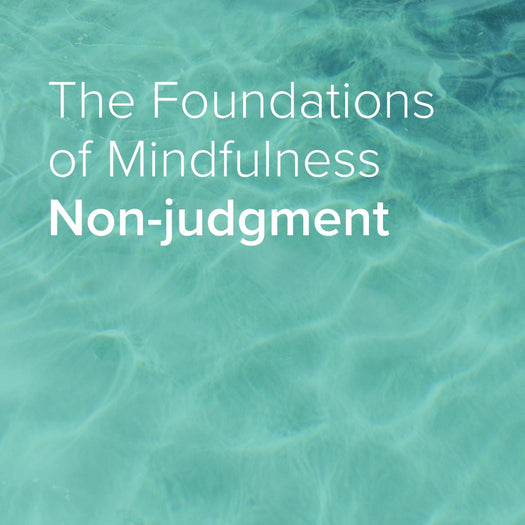Foundations of Mindfulness: Non-Judgment

Part III of the Foundations of Mindfulness: The Principle of Non-Judgment
Did you know that an attitude of non-judgment can help settle your mind? Every day, whether we realize it or not, we judge and label our experiences, other people, and ourselves as good or bad:
…This is good, this is bad.
…I’ll give this post a like, I’ll scroll past this post.
…I’m having a good day, I’m having a bad day.
…I like this person, I don’t like this person.
We go through our day (unconsciously & consciously) judging other people, ourselves, and our experiences. Every judgment creates cause and effect in some small or large way. What would it be like to simply experience something, without judgment?
Watch Muse Meditation Teacher Palma Michel, CEO Coach and Host of the Explorer’s Mind Podcast share the importance of cultivating an impartial witness in our everyday experiences and how an attitude of non-judgment can help settle your mind.
Follow Palma @palmamichel_ and her new podcast @explorers_mind_podcast
What is Non-Judgment?
Mindfulness is cultivated by assuming the stance of an impartial witness to our own experience so that we can bring awareness to our unconscious judgments.
As with all automatic reactions, judgment happens very quickly, as we place our experiences into categories into liking or not liking, wanting, or not wanting.
Non-judgement is the ability to realize that these experiences are just happening, and have nothing to do with you. They are neither good nor bad, they’re just happening and they will pass.
Why Should We Cultivate Non-Judgement?
To simply experience a moment as it is, free of judgment is a true gift. It allows us to put a halt to that inner critic and how we perceive both our inner and outer worlds.
Dropping the judgment and arriving at each new circumstance with an “empty cup” allows us to connect with different people, new experiences, and new feelings. Imagine how much more open and compassionate we could be.
Listen to our Attitudes of Mindfulness Collection on the Muse app, with meditations intended to give you tools to become more mindful. Each meditation includes helpful instructions upfront to prepare for your practice.
Tips on Developing Non-Judgement
Take a moment now:
Pause for 30 seconds to sit here, and try to not think about whether this moment and everything it holds, is good or bad – just observe the sensations of the moment. Don’t think about those sensations, just experience them, without labels.
 Mind
Mind
Bring focus to your body and breath. When your mind begins to wander, simply note it and use it as an opportunity to practice an attitude of non-judgment. Notice what happens to the critical or judgmental thoughts when you respond with kindness and curiosity to experience this moment without labeling it.
 Body
Body
Do a body scan to check for any areas that might feel tense or tight. We tend to negatively judge tension or tightness as naturally, it does not feel pleasant. In that case, we might label it as a “bad experience” which is more judging. If you notice that you are judging – simply say to yourself “judging” and let the thought go.
 Breath
Breath
Let your breath be your guide and anchor – always bringing your attention back to your breath when your mind starts to wander. If your attention continues to drift away from the sensation of breathing (which it will!) use it as another opportunity to practice non-judgment. It’s helpful to remember that the wandering mind is not a mistake and you’ve done nothing wrong. It’s simply what minds like to do!
As humans it’s in our nature to judge, it’s part of our survival instinct… but that doesn’t mean we aren’t capable of change. Take some time today to practice non-judgment with yourself, others, and the world at large. Experience sensations as they arise without labeling them as good, bad, right, or wrong.

